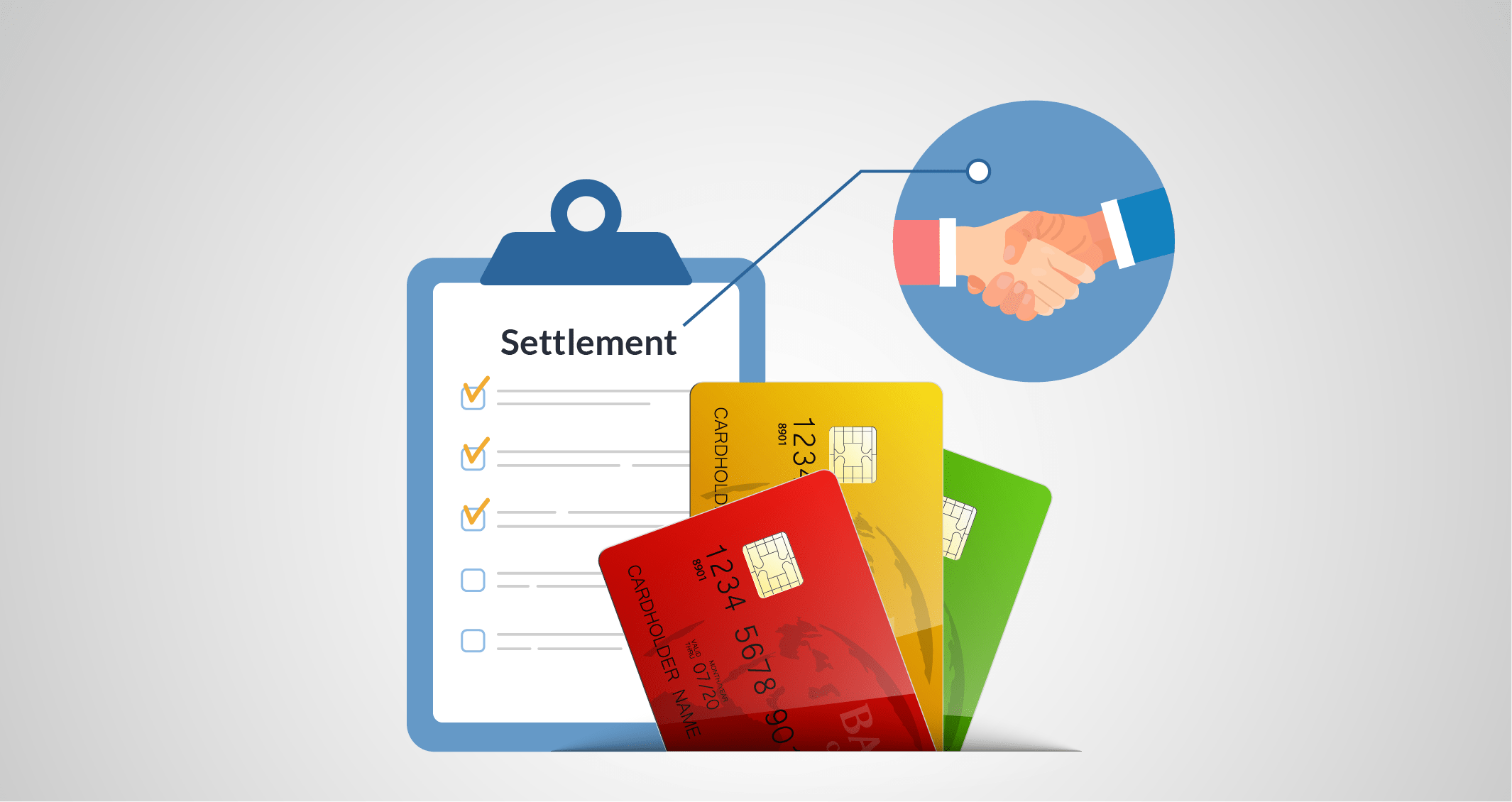The What & How of Credit Card Settlement

DON’T be dependent on credit cards!
DON’T use more than 30% credit!
DON’T max out your card!
DON’T carry balances forward!
DON’T fall into credit card debts!
But what if you DO fall into serious credit card debts? With all the don’ts of credit card usage, it’s crucial to understand the pitfalls of these circumstances. Most people find themselves in the clutches of debt, despite their attempts to use less than 30% credit. After all, it’s nearly impossible to remain prepared at all times for sudden events that require financial support.
Once you’ve accumulated massive debts from one or more credit card providers, you must begin seeking amicable solutions. While recommended to use credit card settlement as a last resort, you should fully comprehend the severity of using this option.
Also Read: All You Need to Know About Cancelling Your Credit Card
Understanding Credit Card Settlement
Numerous occasions call for urgent financial needs like medical emergencies, job loss, vehicle repairs/maintenance, etc. You can inform the creditor about your financial constraints and negotiate viable terms. Simply put, you and the credit card company can mutually come to a decision that enables you to make a partial repayment. In this case, the credit card provider will be able to retrieve a portion of the money without entirely incurring a loss.
To understand this better here’s an example: Ms. A owes a debt of INR 1,00,000 to a credit card company. After informing them about her financial condition, they agree to settle for INR 50,000 as repayment. The remaining INR 50,000 was pardoned since the genuineness of her plea complies with the credit card company’s policies.
You could opt to consolidate your debt or reach out to a debt settlement agency to manage this situation. Credit card settlement will prevent the anxiety and stress of crushing high-interest debts.
How to Apply for Debt Settlement?
Follow these steps to begin the process of credit card settlement.
Step 1: Approach your credit card provider or debt settlement agency
Step 2: Present your case and explain your current financial situation; depending on your plea, the company will decide whether to reduce the outstanding dues
Step 3: Negotiate for better terms with a low repayment amount
Step 4: You could choose to pay in a lump sum payment or file for bankruptcy
Step 5: If the credit card company approves your proposal, you might receive a suitable repayment plan, as per your ability to pay
The Effect on your Credit Score
Much like filing for bankruptcy, going ahead with a credit card settlement could be detrimental to your credit score. The history of your irregular repayment habits will be visible, with settlement considerably reducing your credit score. Your credit card settlement record will remain on your credit score for 7 years.
In the long term, the next time you face a financial crisis, it’s unlikely that you will secure any loan or credit. Due to this mark on your records, potential credit providers will poorly view your ability to repay or manage debts.
Ways to Avoid Credit Card Debt
With such an impact on your credit score, you might want to avoid credit card debt altogether. Try to introduce the following habits into your lifestyle to stay out of credit card debt cycles.
● Limit your usage to under 20-30% of your total credit limit
● Switch to auto-payments or set up reminders to timely pay off your dues
● Unless necessary, avoid taking out cash advances from your credit card
● Always pay off your credit card bills before the due date
● Instead of paying only the minimum due, pay off the whole amount for the billing cycle
● Wisely spend your credit, with fewer impulsive purchases
● Fully understand the terms and conditions of your new credit card before using it
A credit card could bail you out of a tough financial spot, but excessive usage will lead to a terrible debt cycle. Practice healthy credit habits, like minimal card usage or regularly pay off your outstanding dues. Don’t misuse your credit card – it could be a lifesaver someday!
